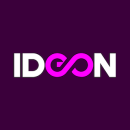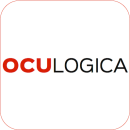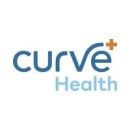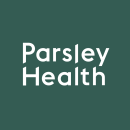With companies like GoodRx, Zocdoc and more leading the way, the digital health boom has touched down emphatically in New York. Healthcare startups are shaking up insurance, consumer-facing platforms, data analytics, medical software, and more — with tailwind from plenty of investor cash. A growing network of innovative New York companies is helping medical professionals work and patients thrive, with more early-stage investment occurring all the time.
We’ve rounded up significant players in this rapidly growing and changing landscape.
Top Healthcare Companies in NYC
- Garner Health
- Cityblock Health
- Kaia Health
- Zocdoc
- Tempus
- Quartet Health
- Flatiron Health
- Galileo
- Noom
- Formation Bio
- Pager
Healthcare Companies in NYC to Know
Paige has developed an AI-native digital pathology ecosystem in an effort to accelerate and transform the discovery and treatment of cancer. The company’s AI suite is designed to provide pathologists, clinicians and researchers with insights drawn from decades of data diagnosed by cancer experts worldwide. Paige’s platform offers secure, scalable digital slide storage, enabling pathologists to further leverage computational pathology products as they become available for clinical use.
Nayya has crafted a platform that does the heavy lifting of finding the benefits most relevant to different working populations. Companies can rely on Nayya’s platform to review multiple consumer data points, determining the benefits that best meet the needs of a business’ workforce.
Individuals are less likely to mismanage their benefits with the technology of Nayya. Not only does Nayya’s platform locate benefits, but it also delivers tips on how to use benefits and the best times of the year to do so. Healthcare becomes a much simpler process with the company’s comprehensive platform.
Working at the intersection of healthcare, data visualization, and 3D modeling, Soho’s BioDigital brings some technological pizazz to the study of anatomy and disease. Its cornerstone product is the BioDigital Human, a 3D human body that invites students, healthcare providers, and patients to immerse themselves in the inner intricacies of our species.
The BioDigital Human comes with a robust API and nearly endless potential applications. It is already in use at the international children’s charity SmileTrain, the fitness training company Yamuna and the NYU school of medicine.
EliseAI specializes in providing healthcare networks and other businesses with an advanced conversational AI platform. Its technology aims to provide patients with 24/7 support across text, phone and email. Beyond answering questions, EliseAI’s platform performs specific tasks based on patient input with the goal of providing personalized responses and preserving a human-like touch in its interactions.
Founded in 2021, Nourish is a healthcare startup that works to connect patients with chronic conditions to registered dietitians. Nourish has over 250 dietitians on its platform who can help patients meet their health goals through telehealth appointments. The company also works with major insurance providers to make nutritional care more accessible for the tens of thousands of people who access its offerings.
Based in Lower Manhattan, Dandy aims to transform dental practices nationwide with digital dentistry solutions. By offering a range of lab products and services, Dandy helps dentists streamline their operations, from taking digital impressions to managing cases and tracking lab work.
Healthee is a health tech company that offers an AI-powered platform for benefits administration. Employees whose companies use Healthee can access the platform to get clear, fast information on what services are covered under their health plans and how to economize on care. Users can even book healthcare appointments through the platform.
Headway matches patients with therapists and psychiatrists through an online platform that shows various details about a provider, such as insurance they accept, treatment specialties and scheduling availability. It also offers administrative support to help mental healthcare providers operate stable, profitable practices.
Headway says it’s working to expand the availability and affordability of mental health services. Patients who use Headway save an average 75 percent on their mental health appointments, according to the company website.
Woe be unto the patient who tries to gather healthcare provider data on their own. Information is hidden all over the place with no guarantees of relevance or accuracy. Ideon does what an army of Google reviewers users simply cannot — it gathers the most complete and useful set of provider data available.
Healthtech startup Chapter offers a platform for Medicare users, who use it to receive care navigation services from specially trained and licensed advisors. These advisors offer counseling on how to use Medicare services like drug coverage, hearing benefits, vision benefits and dental care, and also help ensure that older adults are properly screened and offered appropriate procedures.
Oculogica’s proprietary EyeBox technology picks up abnormal eye movements to help localize and assess concussions and traumatic brain injuries. Concussion and traumatic brain injuries are at the center of raging controversy in the sports world, but diagnosis and treatment remain difficult. There is currently no universally accepted method for gathering data to detect concussion. Oculogica’s neuro-diagnostic is still in development and has not been cleared by the FDA, but the technology may set a new standard for measuring central nervous system physiology and tackling some of the most vexing health concerns around today.
Zipari makes products that streamline interactions between health insurance carriers and their customers. Its CRM implements Salesforce technology to help insurance companies better understand the humans they’re dealing with, while Zipari Content Management and Online Shopping applies digital marketing know-how to facilitate more efficient and rewarding user experiences.
Health insurance carriers are not often famous for providing a rewarding consumer experience. Zipari gives them the tools to build closer relationships with the people they serve and drum up new business and user enthusiasm while they're at it.
Ro is a telehealth care provider that focuses on specific areas and patient populations within the healthcare landscape. The company offers care across sexual health, obesity and more. All care can be delivered remotely through a combination of digital visits, mail order prescriptions and automated lab orders fulfilled at home. Ro’s aim is to take areas of healthcare that are stigmatized, or often neglected, and set people up with a system that allows them to prioritize their care.
Garner Health’s healthcare services app asks prospective patients to share information about their medical needs and returns a ranked and scored list of local doctors that includes insights into cost, quality of care and patient feedback for each. The company works with employers to offer its service as part of employee benefits packages. Garner Health says its tech benefits both businesses and their employees because it reduces healthcare costs while improving health outcomes for patients.
Ribbon Health, a part of H1, is working to make healthcare simpler through their comprehensive data platform that covers data on insurance plans, doctors, costs and care quality. The platform helps users find care options, offers a provider directory, provides support for insurance enrollment and referral management. Ribbon Health is utilizing the power of data from each part of the healthcare system whether it’s insurance companies or electronic health record systems to simplify the often headache-inducing process.
Quartet’s library of behavioral healthcare solutions facilitates collaboration between patients and providers with an aim toward stopping major health crises before they start. It is driven by a robust data engine and strong relationships with various health plans and systems.
Quartet estimates that 35 percent of patients with chronic illnesses have underlying behavioral health problems that need to be addressed, and that 143,000 ER visits a day are related to behavioral health concerns. It has aligned itself with a growing movement to change American healthcare from the ground up and tackle health concerns where they start.
A simple mission–empower the patient–has placed Zocdoc among the ranks of New York’s most powerful unicorns. Zocdoc’s robust consumer interface guides users through the frustrating tasks of finding in-network physicians, comparison shopping, booking (and remembering) appointments, and filling out the necessary paperwork. The online platform is free to use, as are the Android and iPhone apps.
Launched in 2007 and originally exclusive to Manhattan, Zocdoc now covers 40 percent of the U.S. population in more than 2000 cities, demonstrating what consumer-facing startups can accomplish when they streamline complex processes and add a bit of human warmth to an otherwise intimidating experience.
Greatist is a venture-backed media startup packaging health, fitness news, and advice for an enthusiastic 20- and 30-something audience. It has become a go-to resource for bite-sized articles and videos with an upbeat, positive attitude. Greatist is thriving in a difficult and rapidly changing new media landscape.
Formation Bio’s AI-powered software supports physicians and researchers throughout the entire clinical trial process. From neurology to endocrinology, Formation Bio’s platform aims to provide strategic operational insights into every aspect of the pharmaceutical trial process to get life-saving therapies into patients’ hands sooner.
Galileo provides users with immediate access to a team of physicians who specialize in personalized healthcare. Through Galileo’s mobile app, patients are able to connect with their own team of doctors to ask questions, keep up to date with chronic care and even renew prescriptions. Once a short questionnaire is filled out, the team of Galileo doctors gets to work in personalizing health experiences based on each individual’s needs.
Merck emphasizes research and development to tackle some of healthcare’s most pressing matters. From cardiovascular disease to vaccine production, the company has left its mark on a range of areas. Patients can enjoy increased healthcare access when they rely on Merck’s web of resources and partnerships. Whether someone is battling cancer or HIV, the company’s focus is on innovation and consistently providing medicines and vaccines to people worldwide.
Click Therapeutics’ Digital Therapeutics are mobile software applications that undergo clinical trials and regulatory review so that providers can prescribe them as medical treatment. The company’s Clickotine product for smoking cessation is already available to patients, and Click Therapeutics has several more software products in development.
Cityblock Health partners with insurance and healthcare providers to provide an in-home, community-based virtual care platform where patients can access resources to improve and fortify their physical and mental health. The platform acts as a gateway where medical care teams can reach patients and assist them either virtually or in person at a space of their choosing, with trained psychiatrists and therapists available along with community support outreach capabilities.
Curve Health is bringing efficiency to the healthcare industry with a data-driven telemedicine platform. A “care traffic controller” connects bedside nurses and remote physicians, allowing healthcare professionals to coordinate and personalize treatments for each patient.
Healthcare professionals can access patient profiles with Curve Health’s platform, resulting in higher-quality and more personalized care. As a result, patients can spend less time making unnecessary trips to the emergency room and enjoy a simplified healthcare experience.
Stepful is an edtech startup that aims to help people gain access to healthcare careers, regardless of circumstances or background. It partners with healthcare institutions to build career pathways with its digital-first allied healthcare training. The company is headquartered in Lower Manhattan.
MicroHealth focuses on helping patients with chronic conditions who use biologic medications. It provides professionals with secure data that can warn them when a patient is off course, and helps patients improve their habits and live well. There is power in specificity. MicroHealth’s arthritis and hemophilia communities provide targeted resources for patients and pros dealing with daunting and unusual challenges.
Granted builds AI-powered tools aimed at helping people navigate health benefits and medical bills. The company is actively hiring across engineering and product roles, both remotely and at its headquarters in Manhattan's Chelsea neighborhood.
Parsley Health is ensuring every patient receives the personalized treatments they need to live healthier lives. Teams of doctors, health coaches, and care managers work together to provide individualized plans for patients. As a result, people can access convenient online care that is tailored to their needs.
Rather than rely on prescriptions, Parsley Health works to uncover the root causes behind each patient’s health issues. Not only do care teams conduct medical testing, but they also guide patients through lifestyle changes designed to improve their long-term physical and mental well-being.
Noom’s suite of apps puts healthy lifestyle coaching in your pocket. The Noom Weight Loss Coach, the company’s cornerstone product, breaks the pound-shedding quest into a simple series of daily tasks. Other apps focus on cardio, diabetes, and more.
On the outside, Noom’s focus is on actionable simplicity. But it has an impressive array of algorithms and research at work under the hood, and has forged partnerships with Aetna, Samsung, and other heavy-hitters in health.
Flatiron Health is a cloud-based SaaS company focused on cancer care. After watching family members battle cancer, co-founders Nat Turner and Zach Weinberg set up shop on Fifth Avenue in 2012 with clearly articulated core values and a mission to make oncology more tech savvy. Flatiron has established itself as a local and international leader in cloud technology and health tech alike.
Force Therapeutics provides a management platform for patients and medical professionals working with musculoskeletal conditions. Force gives patients complete care through accessible technology, patient-provider communication and video-based education. This continuous dialogue between patients and medical providers dramatically improves patient outcomes.
Cedar’s healthcare platform facilitates patient payment and engagement. Used by hospitals, medical groups and health systems to support end-to-end patient experience, the platform offers services like payment processing, patient relationship management and personalized medical billing, with the goal of reducing administrative friction and improving payment transparency. Patients are given all their benefits information along with their billing statements, so they have a clear sense of what they will owe for services.
Add BoardVitals to the booming roster of young companies driving the health information revolution. This healthcare education startup provides medical content and online assessment tools to prepare health professionals for certification exams, drawing on the work of leading publishers, universities, and providers.
The internet — it’s not just for patients! BoardVitals applies crowd curation and machine learning to the arduous medical board review process, establishing a virtual community for pros in medical fields from child psychiatry to interventional cardiology.
Veeva brings big data to the forefront of the healthcare marketing landscape with their suite of marketing solutions. The company uses its expertise across several healthcare fields, including hospitals and pharmacies to optimize media solutions. Veeva offers targeted TV and mobile marketing as just a few options to reach new patients.
Tempus is building the world’s largest collection of molecular data alongside a platform designed to interpret and utilize that data. Setting a global standard for clinical data libraries, Tempus helps physicians and nurses access patient information more quickly and gain more well rounded insights into individual health data. As such, doctors will be able to make real-time action toward delivering a more personalized model of patient care. Researchers will be able to use Tempus’ data archives to more quickly make discoveries and develop medications for new illnesses.
Founded by French ex-pat Gaspard de Dreuzy and Uber designer Oscar Salazar, the Pager iPhone app charges a flat fee in exchange for which it promises a doctor at your doorstep within two hours of reporting your symptoms, making it more than competitive with pricey New York walk-in clinics.
Thanks to a partnership with Zipdrug, Pager delivers prescriptions without extra charges. What began as a small network of doctors in New York and San Francisco may soon bring on 31,000 new providers thanks to a deal with Evolution, the on-demand arm of the healthcare behemoth EnVision. After rigorous and successful testing in New York’s highly regulated market, Pager is prepared to scale in a major way.
Spring Health is a medtech company that has its headquarters near Madison Square Park. It offers personalized employee mental healthcare with its custom resource matches. The company uses AI, machine learning and client assessment to personalize and scale its offerings.
PatientPoint’s healthtech offerings cover various stages of the care journey from helping medical providers enhance their digital marketing strategy so they can acquire more patients to displaying digital content created to improve patients’ comprehension during an exam. Providers who use these solutions have seen increases in website visits, patient portal sign-ups and preventive health screenings.
Maven Clinic operates a virtual clinic that serves women and families. Its programs include Maven Milk, a breast milk shipping service to support new parents, and Parenting & Pediatrics, which connects families with resources and care meant to help them lead happy, balanced lives. Maven Clinic offers service packages that allow health plans and employers to provide inclusive care access.
Grow Therapy is a telehealth platform for mental healthcare. It connects clients to its network of nearly 9,000 independent therapists, counselors and psychiatrists, who practice across modalities and specialties. Grow clinicians accept most major insurance policies, and because clinicians set their own rates and insurance participation, clients can search specifically for providers operating within patients’ budgets.
Simplifeye, a part of Vyne Dental, offers a SaaS platform that helps dental offices capture more patient referrals. The company’s Amplify platform helps dentists automatically collect patient referrals with a secure, customized dashboard. Additionally, the Simplifeye Flow is a data platform that integrates into any smartphone or smartwatch and displays schedules and allows for intra-team communication.
Kaia Health is a leading digital therapeutic platform that has delivered care to more than 400,000 patients suffering from chronic pain globally. The platform integrates with leading medical providers and provides users with PT-grade automated feedback for an intuitive long-term pain management solution, with both coach and medical professional advice integrated so patients suffering from chronic back, neck, shoulder, hip and knee pain, along with additional trauma, can return to a higher quality of life more easily.
Kinetik is a growing healthtech startup based out of Long Island City, NY. The company is streamlining the healthcare transportation industry with an all-encompassing platform. The company equips brokers, health insurance providers, and transportation providers with products and solutions to enhance transparency, efficiency, and interoperability.
The team at Kinetik strives to grow in a collaborative, inclusive, and innovative environment. The company encourages team members to combine efforts and express curiosity to help millions of underserved patients in the NEMT industry get the care they need.
Firsthand’s work centers around improving the lives of people living with serious mental illness. Its team members are able to assess patients’ physical and mental health so that they can be referred to the right providers for care. The company also provides support to keep people on track with treatment plans and help them access social benefits and other resources to ensure their critical needs like food and utilities are met.
Founded in 2023, Marble Health offers virtual mental health support for students and their families, addressing conditions such as anxiety, depression, trauma and OCD with a focus on accessibility and affordability. In 2024, Marble Health raised $5 million in seed funding, led by Khosla Ventures.
Sailor Health provides a platform to directly address issues in mental healthcare for seniors. It says that older adults receive the least mental healthcare, despite having the highest rates of loneliness and suicide. Sailor Health’s technology is designed to connect older adults to therapy sessions with experienced providers. The company’s headquarters are located in the Soho area.
Spark Advisors is a tech partner that helps independent Medicare brokers build their insurance businesses. The company says its solutions are built to enable growth and improve efficiency. The company is headquartered in New York.
GoodRx operates a digital healthcare marketplace that seeks to fill the gaps left by insurance coverage. By providing discounts on prescription drugs, healthcare appointments and lab testing, the company can provide affordable care to customers who may or may not have insurance coverage. Headquartered in Santa Monica, CA, the company maintains an East Coast office in NYC.
With the goal of global health improvement, StartUp Health is coordinating a network of “Health Transformers” working to improve the wellbeing of all. With more than 165 companies across five continents, StartUp Health boasts the largest digital health portfolio in the world.

















































